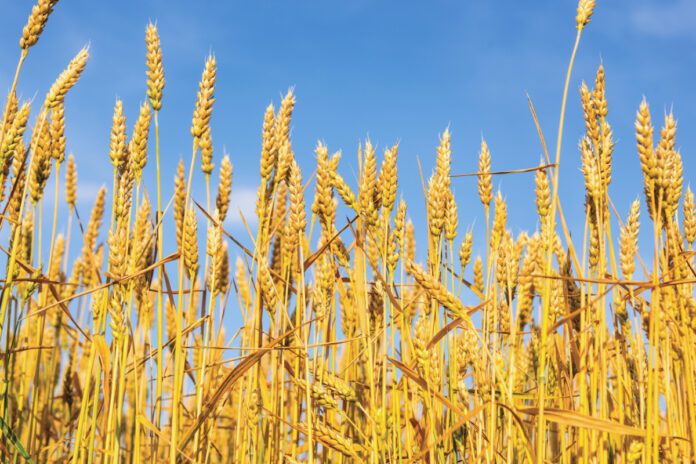ISLAMABAD: The Economic Coordination Committee (ECC) convened on Thursday and approved an additional grant of Rs 7.5 billion to address the escalating crisis in Gilgit Baltistan (GB) related to the hike in subsidized wheat prices. This decision ensures the release of the required 150,000 metric tons of wheat to the mountainous region during the current financial year.
The ECC’s decision comes in the wake of a persistent 43-day protest across GB, triggered by a surge in the price of subsidized wheat. The protest compelled the regional government to retract the notification of the proposed increase in wheat prices.
Alongside the price hike, the shortage of wheat aggravated the situation, with insufficient funds for purchasing the required wheat from PASSCO leading to a shortfall from the center.
Following a comprehensive summary prepared by the GB Council, Ministry of Kashmir Affairs and Gilgit Baltistan, and endorsed by the Ministry of Food Security and Research and Ministry of Finance, the ECC approved the additional funding of Rs 7.5 billion required to release the wheat quota to GB.
In a move to prevent a recurrence of such crises, the ECC also gave the green light to the allocation of 160,000 metric tons of wheat to GB in the next financial year (2024-25). To facilitate this commitment, an estimated Rs 17 billion may need to be allocated in the next budget for wheat subsidies, according to an official source.
During the ECC meeting, a summary regarding a comprehensive sustainable plan for the price rationalization of subsidized wheat in GB was presented. The Federal Government traditionally provides budgetary requirements for GB as a grant-in-aid through the Finance Division. The allocated budget of Rs. 9.5 billion for the fiscal year 2023-24 aimed to provide 150,000 metric tons of wheat (75% local & 25% imported) on subsidized rates for GB.
However, due to the rise in wheat prices, both local and imported, the allocated budget is expected to be exhausted after the supply of 84,998 metric tons till January 2024. The potential stoppage of wheat supply to GB due to deficit funds could lead to severe repercussions and widespread upheavals throughout the region.
The ECC, in response to the crisis, established a committee in July 2023, comprising the Secretary Finance Division (convener), Secretary M/o National Food Security & Research Division, and Secretary M/o KA&GB. This committee held multiple meetings to deliberate and propose a Comprehensive Sustainable Plan for Price Rationalization of Subsidized Wheat in GB.
Considering the latest scenario, previous years’ wheat release positions to GB, and the ground situation, the Ministry of Kashmir Affairs & Gilgit-Baltistan proposed several recommendations during the ECC meeting:
- The ECC was informed that the GB Government revised the sale price of wheat from Rs. 20/Kg to Rs. 36/Kg, effective from January 1, 2024. This decision, coupled with the enhanced rates and wheat shortage, led to protests and law & order situations in the strategically vital region despite extreme weather conditions.
- The ECC was urged to reconsider the 2011 decision to bring the sale price of wheat for GB to 70% of the wheat prices in the rest of the country, considering the existing circumstances of high wheat prices.
- The proposal suggested making the existing ratio of 75:25 of local: imported wheat 100% local to reduce the financial burden on the federal government, resulting in savings of Rs. 700.000 million for the remaining months of the current fiscal year and Rs. 1,432.000 million for the next financial year 2024-25
- Immediate exclusion of the 5th Quintile of BISP beneficiaries from the subsidized wheat category was recommended, potentially saving Rs. 829.880 million for the current fiscal year.
- The ECC was urged to consider a three-year plan of the GB Government for increasing the yield and local cultivation of indigenous wheat, emphasizing timely implementation.
- Approval was sought for the provision of an approved quota of 150,000 MT for the current fiscal year and a quantity of 160,000 MT for the next financial year to address potential food security challenges in GB.
- Additional funds amounting to Rs. 7.5 billion were proposed for approval by the ECC to cover the wheat shortfall for the current fiscal year.
- The GB Government was instructed to ensure the participation of flour mills from GB in the prequalification process of Utility Stores Corporation for the supply of wheat flour in GB to avoid shortages.
The ECC’s decisions reflect a comprehensive and holistic approach to addressing the immediate wheat crisis in GB while outlining a sustainable plan for the future. The proposals emphasize cooperation between the federal and regional governments to ensure food security and alleviate financial burdens.




